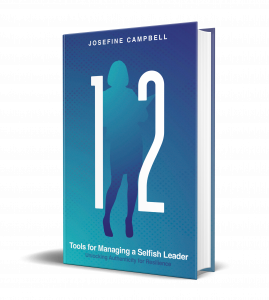
Share This Post
In this article you can read about how important personal energy is, when merging or acquiring companies, and how value is lost when personal energy is ignored.
The investors who acquired Arlene’s company felt the effects of ignoring personal energy when the company lost value. Arlene is a director in a company which were bought. What they experienced was draining to all and the loss was devastating for the company. But before you’ll meet Arlene you need to buy into the premise of why personal energy matters for business success.
Why personal energy matters for business success
Maybe you can recognize the feeling of being completely drained when leaving a meeting? Or on the other hand; feeling full of energy when working with certain colleagues?
Are you more into reading in Danish? Then go to the Danish version of this blogpost here.
When there is a lack of energy at the workplace we see a high level of:
- Misunderstandings
- Conflicts
- Stress
- Double work
- Lack of overview
- Less communication
- Disengagement
- Misinterpretations
- Gossip
- Confusion
- Exclusion.
On the contrary – when there is high energy we see:
- Attention
- Engagement
- Motivation
- Reciprocity
- Positivity
- Clarity
- More communication
- Inclusion
- Belongingness
- Understanding
- Less or no unhealthy stress levels.
Allow me to provide an example. Within the realm of mergers and acquisitions (M&A), which involve purchasing businesses to combine them, it’s a widely accepted understanding that the actual synergy achieved often falls short of the deal’s potential.
As you delve into Arlene’s story below, try to identify the factors that are energy drainers and, consequently, stials synergy within the merger.
Fatigued Executives lacks personal energy
A director by the name of Arlene encountered minimal synergy during a business merger due to power struggles within the organization, leading to conflicts that drained the energy of both staff and leaders.
The acquisition process spanned several months, demanding extra hours and effort from all executives on top of their already high-performance expectations. It felt like an exhaustive eight-month examination. Following the acquisition, the real work commenced.
“While we had a strategy and a new organizational plan in place, practical implementation left much ambiguity regarding roles and job security,” Arlene noted. “The executives, responsible for setting standards and clarifying matters, appeared exhausted and depleted. Consequently, they performed poorly and remained unaware of events lower down in the organization.”
My impression was that they were not only mellow but perhaps mentally fragile. The challenge in such a scenario is the absence of time for recuperation post-merger. Instead, executives must immediately focus on the demanding task of cultivating synergy and ensuring the smooth functioning of the newly merged organization.
If you need a wrap up regarding my matrix and wordings: mellow and fragile, then read along here.
Would you like the newest knowledge and inspiration sent directly to you?
Then subscribe to our monthly newsletter
No Respite in the Sale
Before the acquisition is finalized, the process of selling a business can be taxing for the sellers.
Considerable stakes are often involved: sellers transition from one grueling situation to another, continually having to prove the worth of their investment to the new owners. Contracts often include an “earn-out” clause, where the final payment depends on the company’s performance in the years following the acquisition, typically the two years that follow.
Later, when I spoke with Arlene’s leaders from the selling business, it became evident that the time spent selling the business had left them worn out.
Loss of Employees Equates to Loss of Knowledge
Their intense focus and exhaustion caused them to realize too late that their own organization had become fragile. Consequently, they lost many of their top employees, along with the valuable knowledge they possessed—knowledge crucial to extracting full value during the earn-out period for the new owner.
Understanding how to optimize personal energy stands as one of the primary pillars in our leadership development processes. Without energy, it becomes challenging to engage in self-improvement, view challenges from different perspectives, or deliver top-tier performance, as Arlene and her colleagues should have done.
In their case, prioritizing personal energy was not the norm. Nonetheless, it’s disheartening to realize that a lack of energy often leads to valuable employees involved in an acquisition becoming so depleted that they eventually depart, to the detriment of the new business owner.
We have designed a program to help you manage the personal energy for business success. Here you can read about what others say about the program.


So, the question is when you want to take care of the personal energy in your organization? We are here to help.
Or, maybe you should consider coaching – helping you to gain the benefits of managing your personal energy and to deal with the real challenges. Reach out or take a closer look at the coaching page.
And remember that we help people in multinational companies to handle challenges in a meaningful way and take business to the next level. If you would like to be updated with new articles and videos, sign up for our mailing list. Your mail is not shared with anyone and there are advantages to being on the list e.g., getting the first chapter of my newest book, Power Barometer.












